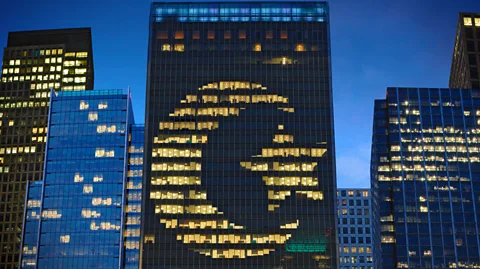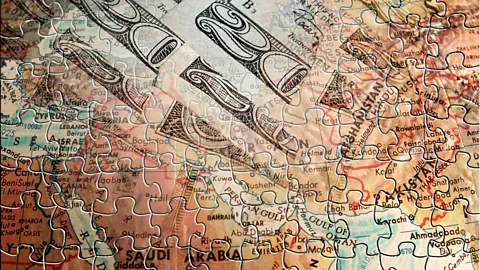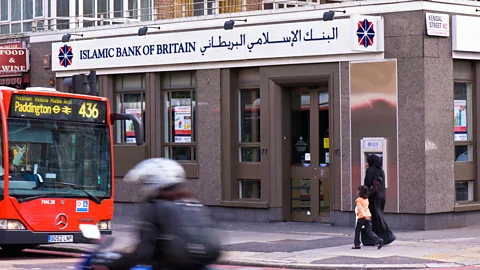How the attacks in Paris might change Islamic banking
 Alamy
AlamyWill the atrocities in France change the future for Sharia-compliant banking?
Islamic Financing
A look at the basics rules...
Islamic banking is guided by rules called Sharia law, which are based on the Quran and the teachings of the Prophet Muhammad. The rules forbid profiting from money lending, meaning Sharia-compliant banks often buy properties for clients and then sell them back at an increased price through monthly payments.
The rules also forbid banking transactions from investing in anything harmful, generally defined as gambling, prostitution, weapons, or alcohol. Developments built with Sharia-compliant financing, for instance, cannot include bars or restaurants that serve liquor.
When Daud Vicary Abdullah stood in front of a packed ballroom at the Global Insurance Symposium in the US city of Des Moines, Iowa, in May, he could feel tension filling the room.
Abdullah was there to talk about a sector of money lending governed by Islamic law, in a place where Muslims are far from common. Abdullah, president and chief executive officer of the International Centre for Education in Islamic Finance (INCEIF) in Malaysia, told the crowd that the goal of Islamic financing is simple: to guarantee ethical business practices.
Islamic financing, based on Sharia law, forbids Muslims from investing in projects where liquor or pork will be sold, for instance. But more importantly for banks, it also prohibits making a profit lending money, meaning most deals are asset-backed rather than interest-backed.
After Abdullah spoke, hands shot up among the 400 attendees. The questions continued for so long that they ran out of time. Afterward, Abdullah had 40 or 50 people wanting to know more about Sharia law and how they could enter the industry.
“People said, ‘Gosh, we thought you were going to get up there and yell “Allahu Akbar”,’ but it was really fascinating,’” Abdullah recalled. “I was, without question, nervous about getting up there, but they accepted me and the subject.”
Since then, there has been terrorism in Paris — the worst attacks on the city since World War II that left 130 dead — and anti-Islam sentiment growing, casting a shadow on all things Islam. Despite this, Abdullah believes people will see beyond the current situation, and recognise that Sharia-compliant banking focuses on a higher ethical standard, something most would likely see as a good change.
“Islamic Finance is not a religious issue. It is a business decision,” said Abdullah. “There will, however, need to be a redoubling of effort to change the potential negative perceptions arising, whether they are real or not. This is an ongoing challenge, but one that the industry is used to and becoming better equipped to deal with.”
In recent years, banking and related Sharia-compliant services have been among the fastest-growing segments of finance in the West. Analysts say the recent news shouldn’t change that, but they say there’s little doubt that some decision-makers in banks may now think twice about expanding into an Islam-related field.
The growth factor
Rarely found outside the Middle East just a decade ago, Islamic financing has found acceptance in recent years from government regulators and bankers, with big Islamic banking hubs now in London and Malaysia. In July, Germany’s first Sharia-compliant bank opened in Frankfurt.
 Thinkstock
Thinkstock“The UK has been very good to open its arms to Islamic finance, as far as non-Muslim countries are concerned,” said Faizal Karbani, founder and CEO of London-based Simply Ethical Ltd, which helps companies adapt to Islamic law. “A decade ago, there was very little on the market that was Sharia certified, and now there are regular seminars and training and many Western banks getting into the industry.”
While Muslims in many Western countries had no choice but to use traditional financing just a decade ago, the growth in Sharia-compliant banking means it’s available more widely than ever before. And in many countries, Islamic banking has grown enough that there are competing banks looking for Muslim customers. The reason is simple: bankers see opportunity in a sector once served only by Arab companies.
Islamic finance has grown by 17% globally in recent years, according to analysis from Ernst & Young. By 2019, Islamic financing will have 1.8tn in assets and see profits triple, the consultancy firm estimated.
That growth is in part because of the expansion into new markets but also because there’s so much liquidity in the Middle East, thanks to oil money, said Iman Abdel Khalek, director of Middle East Debt Capital Markets at Citigroup in Dubai.
“There’s a growing interest in the Western world for Sharia financing as it becomes more mainstream,” Khalek said. “It’s not a market that major banks can ignore.”
In the past year, banks in Hong Kong, Luxembourg, South Africa, and the UK have issued their debut Islamic bonds, said Najib Al Aswad, senior manager at Islamic Finance Advisory & Assurance Services (IFAAS), an international Islamic finance consultancy headquartered in Birmingham, UK. In Hong Kong, RHB Asset Management Sdn will soon add two more Islamic investment funds to the one it created last year.
To make this happen, many countries must rewrite finance laws to allow Islamic financing or, like Malaysia, come up with a dual system to oversee banks. The Islamic banking sector in Malaysia began with just a single bank in 1969, followed by a 1983 law that allowed the expansion of the industry, and the addition of an Islamic money market in 1994.
“It all starts with a political will to change financial regulations,” Al Aswad said.
 Alamy
AlamyWhether there will be that political will now, after the attacks in France, is unclear. Among the barriers to more widespread acceptance in the West has been a lack of training offered for those who wanted to learn the rules of Islamic financing and no way for consumers to know if banks were truly compliant, Karbani said.
Now, several international organisations, including Ethica Institute of Islamic Finance in Dubai and the UK-based Chartered Institute of Management Accountants, offer certification programs for banks, accounting firms, and other companies that might be looking to diversify into this sector.
Uncharted territory
But even as major Western banks begin to embrace it, Islamic financing remains illegal in some countries and hard to find in others. In Japan, for instance, finance laws don’t allow banks to buy a property and then sell it back to customers, as is done by many Sharia-compliant banks. In February, however, Japan’s Financial Services Agency hinted that it may begin to relax the rules to allow Sharia-compliant banking.
“There is still healthy skepticism towards Sharia financing because people look at it and think that it’s a product based on faith,” Karbani said. But that may change as banks realise they’re closing off a growing segment of banking. “A lot of the growth is not guided by good sentiment but good financial thinking.”
In China, HNA Group, a conglomerate with investments from aviation to tourism, is now issuing what’s believed to be the country’s first Islamic financing, offering Sharia-compliant bonds and a $150m deal to buy ships.
Meanwhile, in the US, the first Islamic bank opened in 1980, but the industry there has grown little since, according to a report from the US Federal Reserve. While large banks like Citigroup offer Islamic financing, only one US bank, Michigan-based University Islamic Financial, offers Sharia-compliant services exclusively.
“One of the main issues with Sharia financing is simply that it’s misunderstood,” Abdullah said.
 Alamy
AlamyDavid Yerushalmi, a New York lawyer who has led a campaign in the US against Sharia-compliant financing, said the problem isn’t an understanding of the industry. He said the problem is that Sharia compliance requires a committee of experts to oversee the bank’s activities in that field, and these committees often end up with “hardcore Islamic radicals,” according to Yerushalmi.
“When you look at Sharia-compliant financing, the investing public doesn’t know what it’s getting,” Yerushalmi said. “People think banks are supplying Sharia-compliant programs, but what they’re really getting is financing overseen by radicals.”
After the attacks in Paris, Yerushalmi believes the Sharia-compliant financing industry will slow for a short time but will continue to grow after the initial anti-Islam sentiment passes.
Standardising the rules
Falling oil prices might also slow the growth of Islamic financing, Khalek warned, but a bigger issue is the debate about how to define Sharia rules. Her division is overseen by a board of three scholars that sign off on deals and provide regular audits, she said. Other banks offer far fewer guarantees.
“There is certainly a lack of standardisation in considering what is, and what isn’t, Sharia compliant,” Khalek said. “But there is continued innovation in this industry.”
Abdullah’s university in Kuala Lumpur, INCEIF, with 30 full-time faculty, is one such organisation looking to provide a standard set of rules for the industry. His school offers three masters and a doctorate in the practical application of Sharia rules in finance. His campus is also home to the International Shari'ah Research Academy for Islamic Finance (ISRA), which hopes to align different schools and governing bodies on what defines Islamic financing.
More than anything, Abdullah wants the West to embrace the idea that Islamic financing isn’t just about what’s permissible but what’s ethical. Islamic law dictates that financing ought to support only the public good, he said, meaning Sharia-compliant banks can’t use money to buy bulldozers used to destroy rainforests.
“There has been a lot of trust lost in the financial system in the last few years. Sharia financing offers an alternative to this,” Abdullah said. He said he believes, “Sharia equals ethical and responsible financing.”
